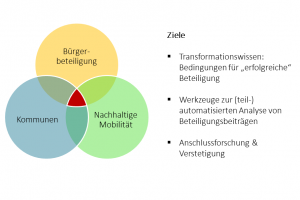
In the course of the project, two arguments for increased participation of citizens in political decision-making are investigated; specifically, that participatory processes lead first to a better quality of the decisions and second to more legitimacy of these decisions.
i.e., ultimately to greater recognition of the decisions reached through participatory processes. However, empirical testing of the expectations described above proves to be extremely difficult, because the effects depend on a complex interplay of numerous factors.
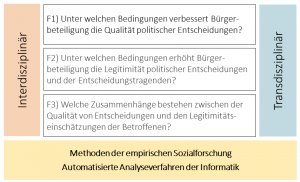
Building upon extensive previous research (see in particular the Projekt der Raddialoge in cooperation with Bonn, cologne and Moers) the project focuses on the systematic and comparative study of participatory processes initiated by public institutions in the context of urban development related to sustainable mobility. In this context, junior researchers from the social sciences (political science or sociology), urban and spatial planning, and computer science are working together to i) investigate the change in individual attitudes and factors conditioning them, ii) evaluate the relevance of the content of the insights gained through participation and their determinants, and iii) provide targeted support for these processes through automated evaluation and visualization methods.
To link academic research with practice, the junior research group draws on a broad network of municipalities, participation service providers and associations. In order to make the findings applicable in the practice of citizen participation on site, guidelines for participation procedures on the topic of sustainability are developed and open-source software tools are made available to support the evaluation of participation procedures.
-
-
- Titel: Participation Benefits/ CIMT (Citizen Involvement in Mobility Transitions)
- Funders: BMBF in the framework program “Research for Sustainable Developament” (FONA)
- Program: Junior research group in social-ecological research
- Runtime: Mai 2019 thru April 2024
- Website: https://www.cimt-hhu.de/
-
Work Program
The work program is divided into three work phases: In the preparation and conception phase in the first year (05/2019 – approx. 04/2020), the problem analysis and the development of the basic theoretical concepts, methods and instruments will take place (work package 1).
In the subsequent implementation and research phase, which will last about 2.5 years (approx. 05/2020 – 12/2022), the process-accompanying investigation of concrete participation procedures in the field of mobility and sustainability will take place (work package 2). Detailed municipal surveys and interviews with relevant stakeholders will be conducted. Furthermore, automated procedures for the analysis as well as for the aggregation and visualization of participation contributions will be developed. In addition to the process-accompanying investigation, already conducted procedures and their results will be systematized and collected in a database (work package 3). This will be followed by a synthesis of the various (disciplinary) findings (work package 4). The focus is on determining possible factors influencing the quality and legitimacy of participation-supported decisions. Furthermore, the developed automated procedures will be implemented in a first prototype and subjected to an application test in the context of usability studies.
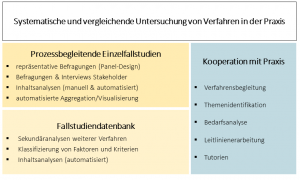
The synthesis will flow smoothly into the approximately one-and-a-half-year final and follow-up phase (approx. 01/2023 – 04/2024), in which the findings will be made usable in practice by developing guidelines for constructive participation and by providing open-source software tools to support the evaluation of the procedures and the determination of contribution quality (work package 5). Throughout the project, there is intensive exchange with practitioners, including on-site research in local communities and annual advisory board meetings and practitioner workshops.
Planned exploitation of results
.
The key scientific contributions of the junior research group will be made available to the scientific communities at conferences and in the form of peer-reviewed publications. For this purpose, concrete milestones have been defined over the course of the project, which provide for seven peer-reviewed publications (some as open access) in addition to the scientific qualification work. For follow-up research, the collected data will be made accessible in a research data archive. The work of the junior research group will also have an impact within Heinrich Heine University, on the one hand by integrating the group into the existing structures of the university (i.e. Düsseldorfer Institut für Internet und Demokratie, NRW-Forschungskolleg Online-Partizipation), on the other hand, the contents are to be imparted within the framework of teaching. Following the junior research group, the continuation of the research in the context of a permanent professorship is planned. For this purpose, possibilities for follow-up funding are also being actively explored.
The knowledge generated by the research on the possibilities and limits of citizen participation as well as the visualization and analysis tools are to be made directly applicable to practice. During the project, the findings will be regularly presented to practitioners, e.g. in the form of annual events and practical workshops. In the medium term, guidelines will be developed in the second half of the project based on the results in order to provide local actors with concrete recommendations on how to shape citizen participation in the context of sustainable urban development in a promising way. On the other hand, suitable open-source software tools will be made available to support both participants and persons entrusted with the evaluation of such procedures. These lend themselves to commercial exploitation, e.g. for the participating participation service providers.
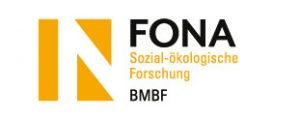
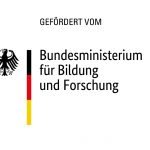
Contact
Jun.-Prof. Dr. Tobias Escher
Board, Computer Science, Political Science, Sociology
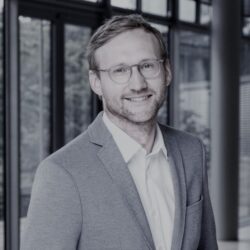
Tobias Escher leads a BMBF-funded junior research group investigating the effects of participation processes on the quality and legitimacy of political decisions, especially in the context of the transformation to sustainable mobility in the local context. Previously, he supervised the DIID as well as the NRW Forschungskolleg Online-Partizipation at the HHU-Düsseldorf as scientific coordinator. He is a social scientist and holds a PhD from the Oxford Internet Institute at the University of Oxford. He can also draw on his basic knowledge of computer science when assessing the possibilities and limits of digitization.
His research focuses on the evaluation of political participation online and offline. In particular, he addresses the question of the extent to which citizen participation contributes to higher quality and legitimacy/acceptance of political decisions. He has developed a teaching module on the theory and practice of online participation, from which, among other things, a project on student participation in teaching has emerged.
Photographer: ©Tilman Schenk

